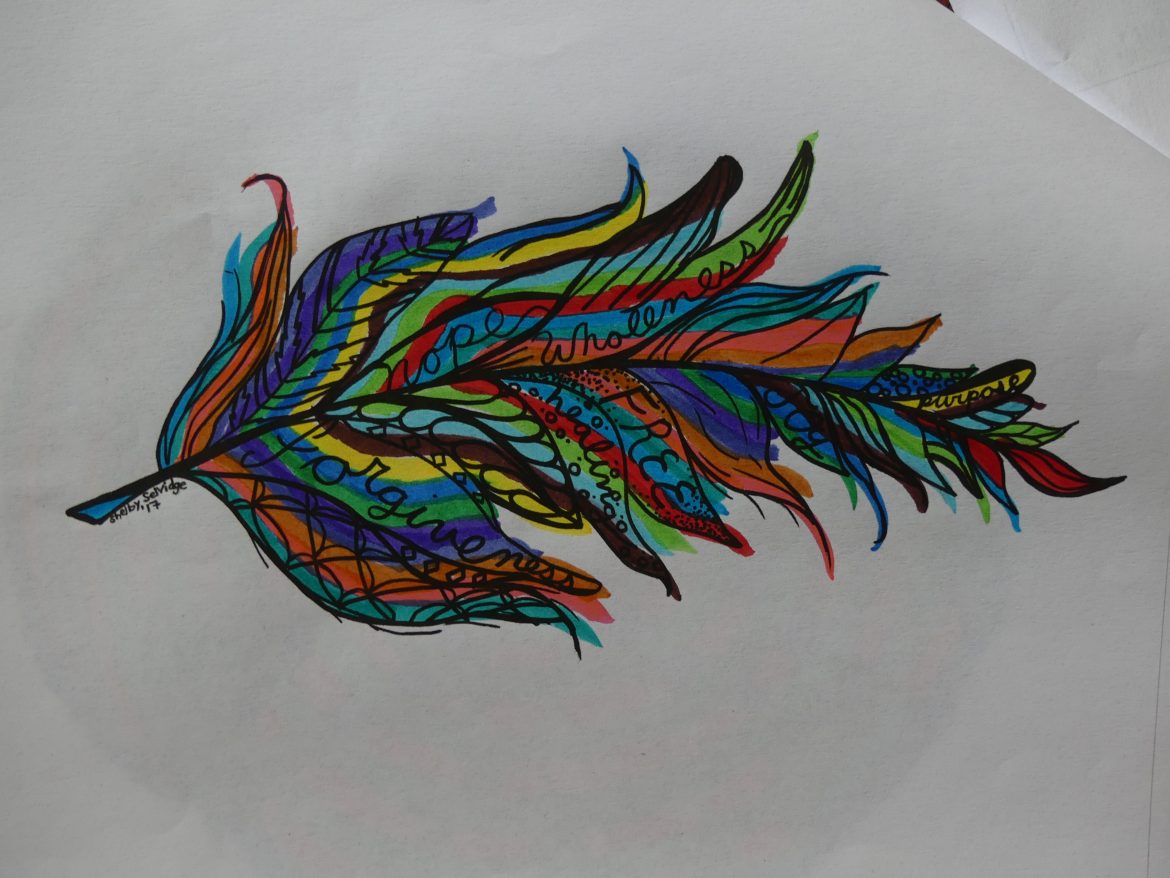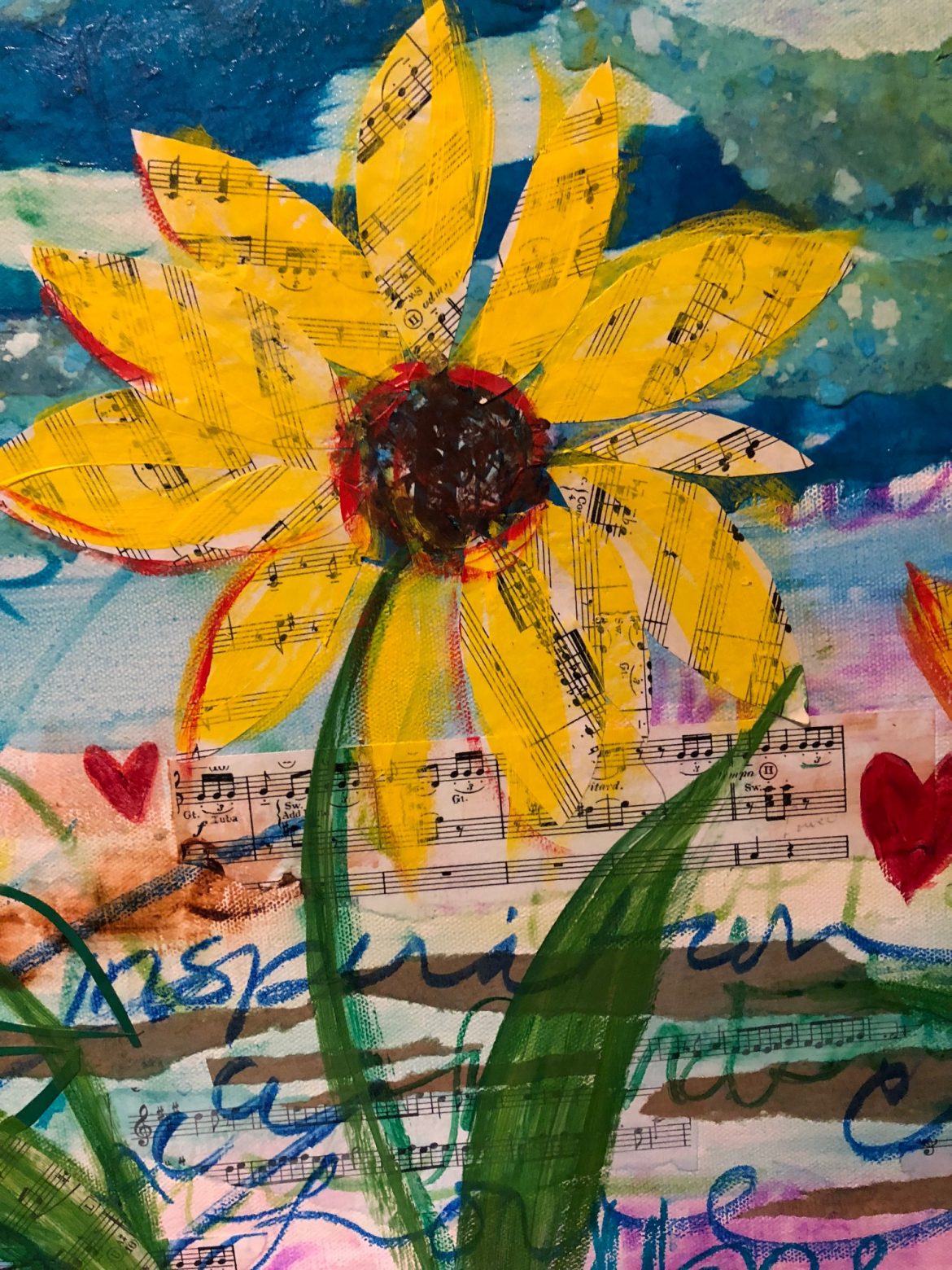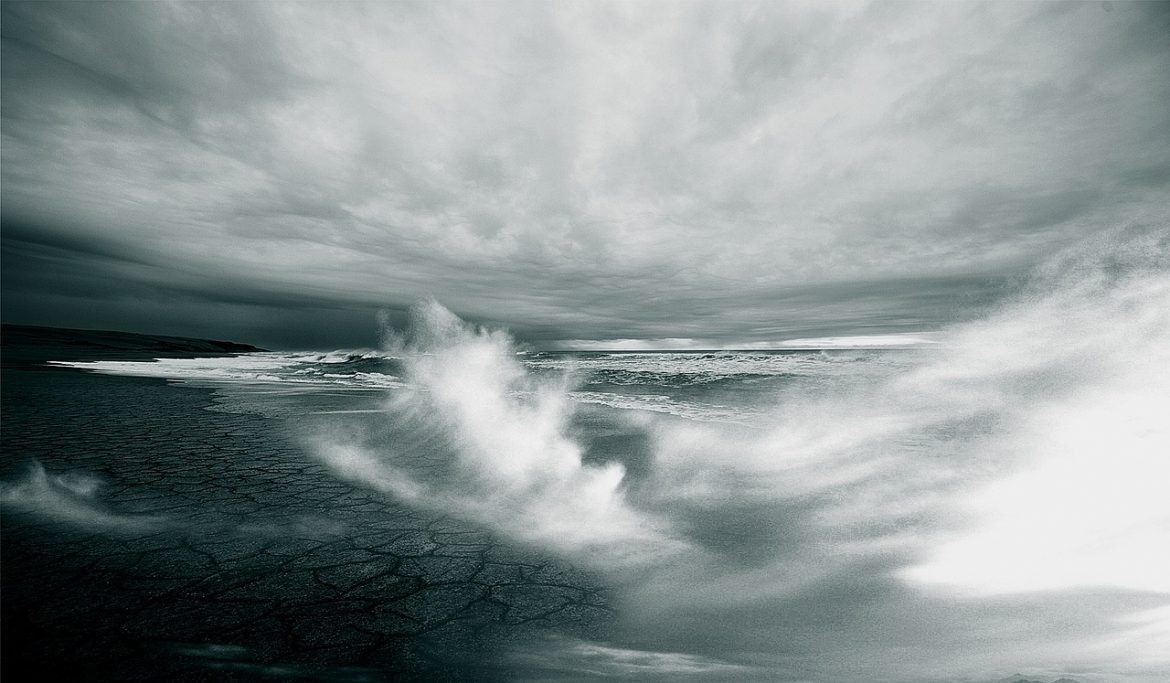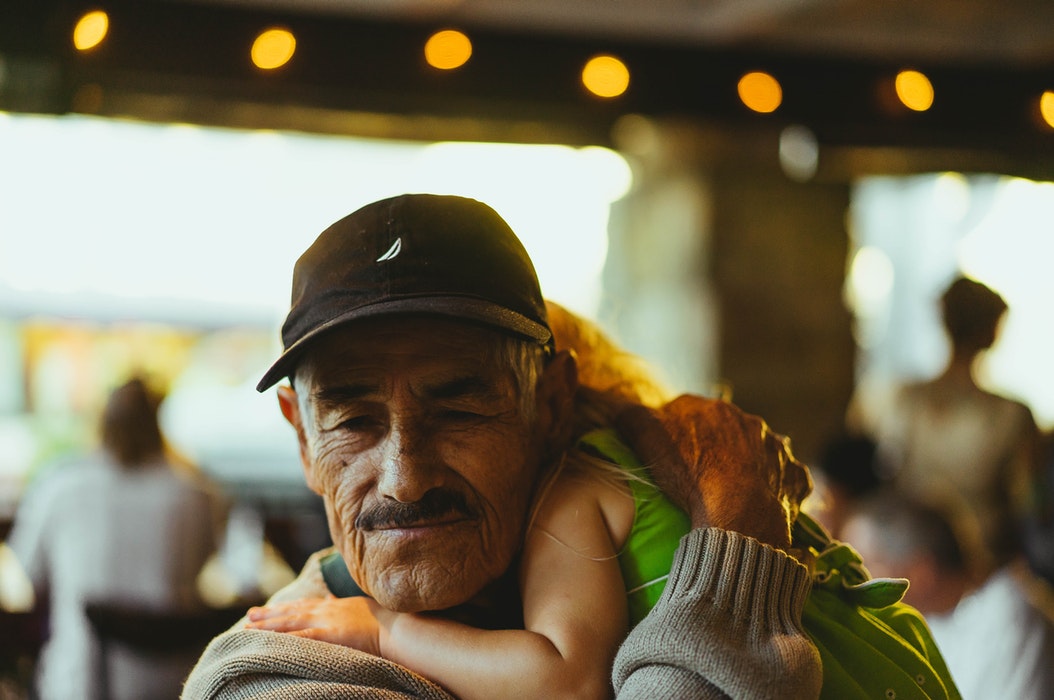by Christine Sine
Last week I did a retreat with Springwater community in Portland. It was a great opportunity for me to preview some of the ideas I talk about in The Gift of Wonder. I experimented with new concepts and ideas, some of which worked and some of which didn’t. They were very direct with me, more what I expect from an Australian then an American audience. I loved it. I learned a lot from the experience and appreciate their willingness to help me shape what I do and how I present my material. Here three important lessons I learned.
Adapting to a Specific Audience Matters.

Awe and wonder in a sunset
I began the retreat by doing my own special awe and wonder walk around the property, capturing this beautiful sunset on the way.
The process itself began with sharing some of the childlike characteristics that I talk about in my book – playfulness, awe and wonder, curiosity, love of nature, acceptance of difference, and nostalgia to name a few. However it was only when I started to relate these to their specific community and how it interacts with the neighborhood that they really came alive.
Does your God laugh and play and have fun? How do you play together as a community and express that in your neighborhood? Where do you experience awe and wonder in your community and your neighborhood? were questions that particularly engaged their imaginations.
For most of us, awe and wonder conjures up images of spectacular mountain views and breathtaking waterfalls. I shared with them that Father Greg Boyle, in Barking to the Choir, suggests it isn’t just nature that gives us this sense of awe. We can embrace the marginalized with a sense of awe too. He comments beautifully: “Awe softens us for the thunder glance of God, then enables us to glance at others in just the same way.”
Seeing the awe and wonder of God revealed through the marginalized and the disadvantaged can be a breathtaking experience. It is something all of us need to reflect on.
I suggested to Springwater community that they do an awe and wonder walk around their neighborhood, which is one of the poorest areas of Portland, sharing what gives them a sense of awe in their neighbors. Perhaps you would like to do the same around your neighborhood. I think it will open your eyes to aspects of your community you have never noticed before. You might like to combine it with a prayer walk.
Interactive Presentations Work Well
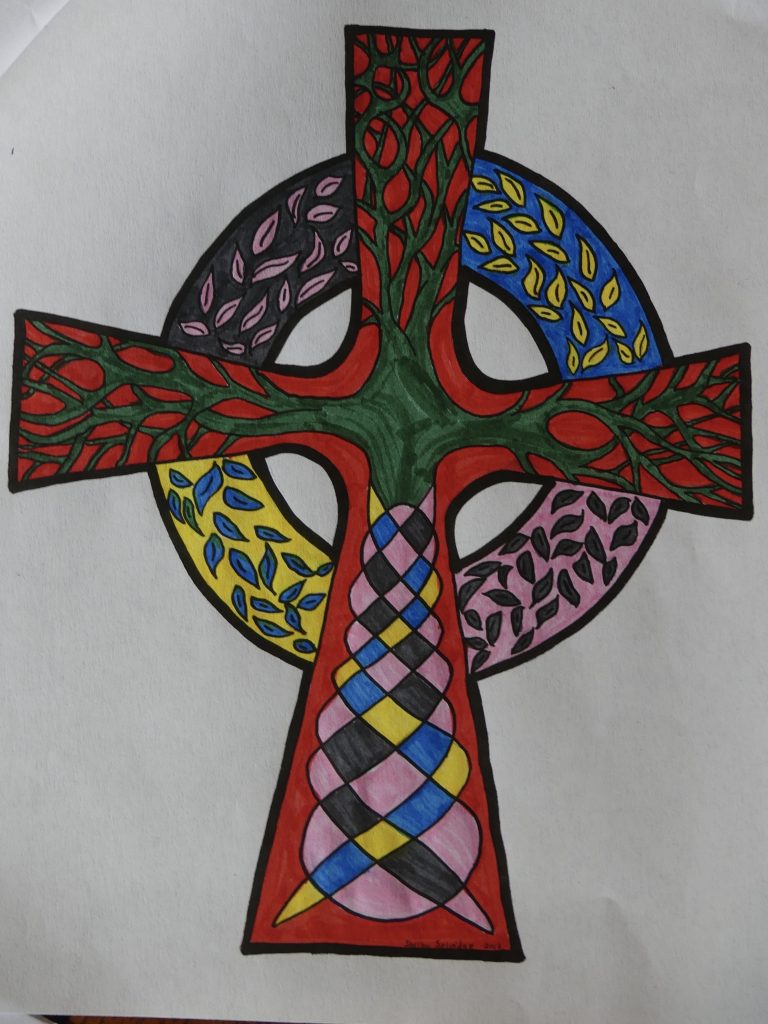
Celtic cross – Shelby Selvidge
Lecture style presentations don’t work well these days. Audiences love interactive opportunities like the coloring templates Shelby Selvidge created for me a couple of years ago. Activities like these help people focus. Some colored, some drew creative designs, others used them as background material for contemplation. It de-stresses people, stirs imagination and opens all of us to new ideas and concepts. It provided an environment in which we could all learn from each other even when we disagreed.

Labyrinth with ants – template by Shelby Selvidge
All creative arts like this help us draw close to God and stir new revelations for us. When was the last time you engaged in a creative act that sharpened your focus and drew you into the divine presence? Perhaps you would like to try something like Lilly Lewin’s Paint Your Prayers this week to help move you in this direction.
Language Matters
Part of what this community helped me realize is that language matters. Not only do I need to adapt my Australianisms, but my ageisms for current audiences. Words that held traction in the 90s like “color-blindness” don’t necessarily communicate today. Being sensitive to my audience in this way is important. It can also be fun as it provoked us to joke back and forwards and brainstorm about appropriate language. I think we all learned something new.
When was the last time you stopped to consider the appropriateness of the language you use and how it impacts the people you talk to? Perhaps it is appropriate language for God that you need or for the people you are talking about.
We All Contribute to Community
The last exercise we participated in was drawing our hand prints on a large sheet of cardboard and writing on them what we felt each person contributed to community. We had the children participate too. Each member of the community was then invited to go around and write on someone else’s handprint what they thought this person contributed. It was a fun and inspiring exercise.
When was the last time you shared with your family, friends or community what you felt they contributed to your life? We all need affirmation and encouragement and this is a great way to offer it. Consider doing this exercise with those you love and live with.
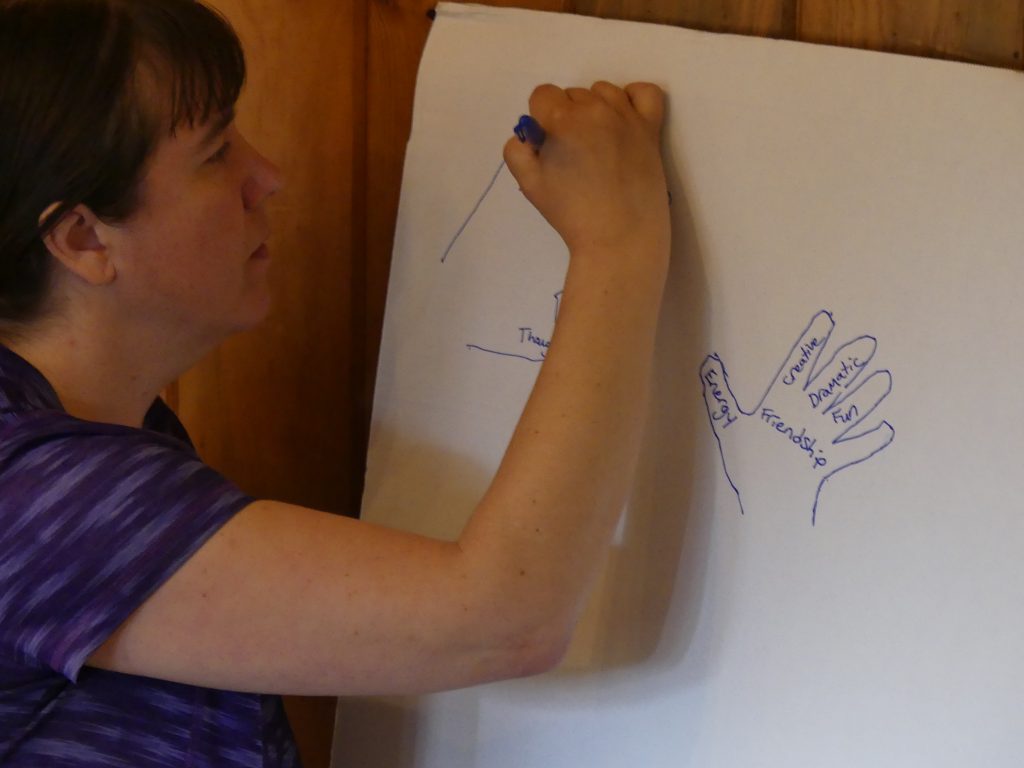
What do you contribute to Your community?
I have had a rough few weeks dealing with depression and just not feeling like doing much of anything that I enjoy doing. I’ve been stewing on things and usually that means I shut down, tune out, and watch a lot of Netflix. But my Freerange Friday Post called “Wonder or Wondering?” inspired me to do a practice that helped me process my emotions.
I prayed with ART! Creating! Creating things brings me life. Sometimes when I”m down, I will make chocolate chip cookies, or a pie to give away to friends or neighbors, sometimes I journal, and sometimes I do art. Art brings me joy! Creating brings me peace. Two weeks ago, I had a large blank canvas waiting for my art class to restart. This large blank slate seemed to call me. I grabbed some bright crayola markers and wrote down all the questions that were spinning around in my mind. Just having these things written down helped. But having these things written down in a larger format that I could see daily, made an even bigger impact in my mood and attitude. After pondering the questions
What is being planted in your Garden of Wonder?
What needs Planting?
What is already being planted? What seeds are already there?
What signs of wonder can you already identify? What do you notice?
What needs Pruning? What Needs Cultivating? What needs more water?
What WONDER produce might need picking and sharing with others?
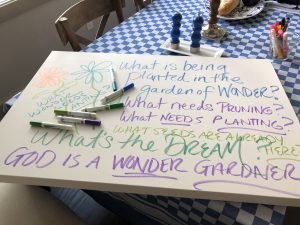
I decided to add to the canvas. I got out my Modge Podge, my gloss medium, tissue paper and some old sheet music and started covering the canvas. I also used my markers to write down things that I wanted to grow in my Garden of Wonder…..
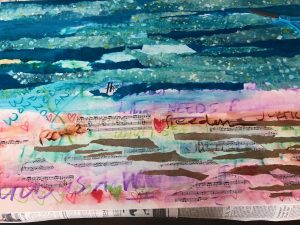 Things like: Freedom, Peace, Justice, Joy, Hope, Love, Forgiveness.
Things like: Freedom, Peace, Justice, Joy, Hope, Love, Forgiveness.
As I covered the canvas with color, I began to ask Jesus to show me more of His love and grace. I used the process of messy gluing, and writing and painting as prayer. The collaging process was good therapy. I asked God to fill me with more wonder, more peace, more creativity, more awareness of the needs around me.
More of Jesus, less of me.
I let the newly layered prayers sit for several days. Allowing the colors and the covering of the words to cover me too.
Then this week I began adding paint to the canvas. Adding to the melody of words and paper. Allowing the Wonder Garden to really grow. Allowing the Wonder Gardener, God, to til the soil of my heart and heal my emotions.
How about you? What things heal your soul and bring you joy? What creative process brings you life? What if you allow this creativity to bring you closer to Jesus?
What could you learn through writing out, drawing out or collaging your prayers? I’d love to see and hear about it!
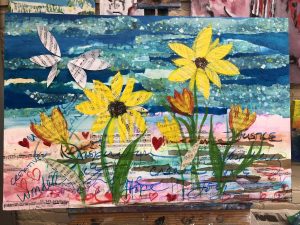
As we continue this months theme, Spirituality of Imperfection, enjoy this beautiful prayer by Talitha Fraser —
Hey God,
We’re not down, we’re not out, but we’re hurting.
This vulnerability sits like an open wound and
every new hit jars it.
We breathe through it, lean into it,
listen for what the pain has to tell us.
Lend us quiet that allows us to hear
the harmonies of the universe that let
us know, even in this, as we are, we have
a place in the order of things.
Lend us space that allows us freedom
for those things that are tight to loosen,
those thoughts and events moving quickly
time to slow so that we can look and
see them clearly.
Lend us peace that allows us grace
to tell the difference between our internal
and external insecurities – our own and
also of those around us.
There is much that is unknown,
but You are not.
We are grateful for that.
Lead us. Teach us. Send us.
Amen
As Hurricane Florence bears down on the East coast of the U.S and over 1 million people start evacuating, our prayers go out to all those who are in the path of the hurricane. We pray too for those who will respond to the destruction and the flooding and also for those who open their homes to victims of this disaster.
Lord God almighty, creator of the universe
Ever-present, ever caring, you are always with us
Closer than a friend in times of trouble,
Our shelter in the midst of all disasters.
In the quiet and the storm you surround us,
Your love embraces and comforts us.
Lord God almighty, faithful and trustworthy One,
In this time of storm, of flooding and disaster
be with all who are vulnerable.
Hold them close
as the winds blow, the oceans rage and the land slides.
Place your arms around them as the trees fall and rivers rise.
Keep them safe from wind and rain and fly debris.
Lord God almighty,
Guide those that put their lives at risk to help.
Keep them safe.
Be with rescuers and firemen,
With electric workers and emergency crews,
With all who reach out to neighbours with your love and compassion.
Protect and guide them in the midst of danger and of strife.
Lord God almighty
Go before, and behind,
Be beside and above,
May all find shelter in the embrace of your love.
By John Birch —
I am a member of the Methodist Church in the UK, and one of the main themes of Methodism for some time has been ‘discipleship’, a word that has many definitions. At its most basic it is a response to a call (not always when we’re expecting it) as with the first disciples preparing their fishing nets, or Matthew at his tax booth. It’s the power of that call, be it only a gentle whisper, that makes us want to know more and begin the journey of discovery that the early disciples experienced. It’s a life-long journey because it encompasses everything we are and do, but it’s also a journey that we undertake in the company of so many others, those who Jesus calls ‘the salt of the earth’ or a ‘light of the world’.
As our faith and commitment deepen along that journey of discipleship, so our lives begin to reflect the love and grace of God shown to us, and we in turn become points of light in an often dimly lit world, or the salt that adds something special to the recipe served up by the world. At home or at work, people begin to see something of the God we serve, and may even be drawn to a place where they too might hear that gentle whisper and respond.
The beauty of God
be reflected in your eyes,
the peace of God
reside within your heart,
and the love of God
be the focus of your life,
this day and all days.
by Christine Sine
Over the last couple of months I have been hacked, harassed and abused on Facebook. Friends have asked me “how do you cope?” Facebook makes me laugh and cry. Sometimes I feel stretched beyond my comfort zones and hover over the “unfriend” button.
In spite of that I love my Facebook friends. I love that they hold diverse and often totally opposing views on politics, theology and what constitutes a spiritual discipline. This is the place where I hear different viewpoints, get pushback on what I believe and am challenged to think deeply about why I believe it. It would be so easy to dismiss those I disagree with and ignore their comments, yet I know that if I am only willing to listen to those who hold the same viewpoints that I do, I will stop growing and moving towards a deeper understanding of faith and of the world in which I live.
Facebook Is My Go to Resource Center
I am very grateful that these friends often point me towards reading material and resources I would otherwise not have discovered. Recently many responded to my question “What childlike characteristics make us fit for God’s kingdom?” Their comments helped me shape my upcoming book The Gift of Wonder and I am eternally grateful for their help.
This is in many ways is my strongest and most faithful learning community.
Facebook Connects Me to The World Around Me
Taking time to reflect on what my friends post and how they respond to what I post has become an important part of my life. Sometimes it connects me to suffering and heartache that would otherwise be hidden from me, like when Kostas Kotopoulos spend six weeks on the Greek island of Lesvos working with refugees from Syria and Iraq. His cry for tents to help house this steady stream of displaced people tugged at my heart, encouraging an immediate response.
At other times Facebook has invited friendships with people half a world away. Some of these people like Jenneth Grazer and Ana Lisa de Jong have become important parts of the Godspace writing community. Friends I may never meet yet still friends.
Facebook Helps Me Pray
What matters, I find is that I don’t just skim over the comments and responses to my postings. I am challenged to take everything seriously, to meditate on it as I would a verse of scripture or quote from a book I am reading. To pray over my own response and allow myself to be both stretched and changed by the sometimes uncomfortable conversations that result.
What Is Your Response?
How do you interact with your online communities? How seriously do you take the comments of those who disagree with you?
Do you allow Facebook, Instagram and Twitter to shape you and your ideas? If so in what ways?
By Lynne Baab
Today is National Grandparents Day, celebrated in the United States since 1978. Some other countries have grandparents day on other days of the year, and some countries have separate grandmothers and grandfathers days.
My initial impulse for this post was to talk about our darling granddaughter and what a blessing she is. And I will get to that. But first I want to say something about people who aren’t grandparents, even though many of their age-mates are.
I’m thinking of friends of mine who never had children because of the possibility of a congenital condition being passed on. And another couple who never had children because it just never happened. I’m thinking of friends who had one pregnancy – twins – that ended in stillbirth. They never got pregnant again. I’m thinking of friends whose children never married or have chosen not to be parents. These couples will never be biological grandparents, but they have showered love on their nieces, nephews, great-nieces, great-nephews, and other assorted children God has brought into their lives. Some of them volunteer in children’s programs at church.
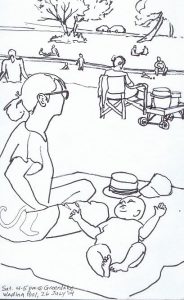
[illustration: our daughter-in-law and granddaughter in 2014 by Dave Baab]
I’m listing all these people before describing the joys of grandmother-hood because for every person who might feel excited that Grandparents Day exists, and who might want to wax eloquent about how cool it is to be a grandparent, there may be another person for whom the day evokes sadness and a sense of loss.
How can we talk about something wonderful that others aren’t able to experience?
Carefully. With sensitivity. Using our imagination to try to consider how our enthusiasm might impact others.
I feel this challenge all the time. My husband I own a house that is just right for us in a city where home ownership is increasingly difficult for many. I have interesting work at an age when many people are forced to retire or can’t find meaningful things to do.
And we have a beautiful, intelligent, and charming four-year-old granddaughter when many of our friends don’t have grandchildren. Being a grandmother has been one of the most satisfying things I have ever experienced, the chance to do over some aspects of parenting with more wisdom, the opportunity to enjoy a child for a few hours or a few days and hand her back to her parents. I find huge pleasure in our granddaughter’s beautiful skin and eyes, as well as her cuddly body and affectionate hugs. I love her questions about so many aspects of life and her observations about bizarre and unexpected things.
Sometimes I’m on the opposite side of this uncomfortable divide between people who have something and people who don’t. I’m no longer able to walk long distances easily, which makes travelling difficult. Yet I want to rejoice in other people’s wonderful hikes and trips.
I want to be a thankful person, rejoicing in God’s gifts to me and to others. I want to be a compassionate person, lamenting with others what they don’t have that they desire, and feeling appropriate sadness when I experience loss. I want to be a person of prayer, who can pray for the needs and desires of the people in my life as well as for my own.
This juxtaposition of gifts/thankfulness with loss/sadness is particularly real to me right now because of the recent release of my book, Nurturing Hope: Christian Pastoral Care in the Twenty-First Century, which addresses many kinds of caring by Christians. In the chapter on resilience in caring for others I recommend embracing rhythms, and maybe part of what I’m talking about in this post is a rhythmical pattern of life where we embrace diverse emotions at different times.
The Psalms are an excellent model for movement between many different moods of prayer and many different thoughts about life. I cannot let my sadness about the childless or grandchild-less state others experience dull my prayers of thankfulness for my granddaughter. At the same time, I cannot let my own joy and gratitude crowd out my concern for others and what they feel.
God wants me to feel all these emotions at appropriate times. God wants me to pray about all these things, perhaps at different times, perhaps at the same time.
“The Lord is good to all,
and his compassion is over all that he has made.
All your works shall give thanks to you, O Lord,
and all your faithful shall bless you.
They shall speak of the glory of your kingdom,
and tell of your power. . . .
The Lord is faithful in all his words,
and gracious in all his deeds.
The Lord upholds all who are falling,
and raises up all who are bowed down.”
Psalm 145:9-11, 13, 14
As an Amazon Associate, I receive a small amount for purchases made through appropriate links.
Thank you for supporting Godspace in this way.
When referencing or quoting Godspace Light, please be sure to include the Author (Christine Sine unless otherwise noted), the Title of the article or resource, the Source link where appropriate, and ©Godspacelight.com. Thank you!

